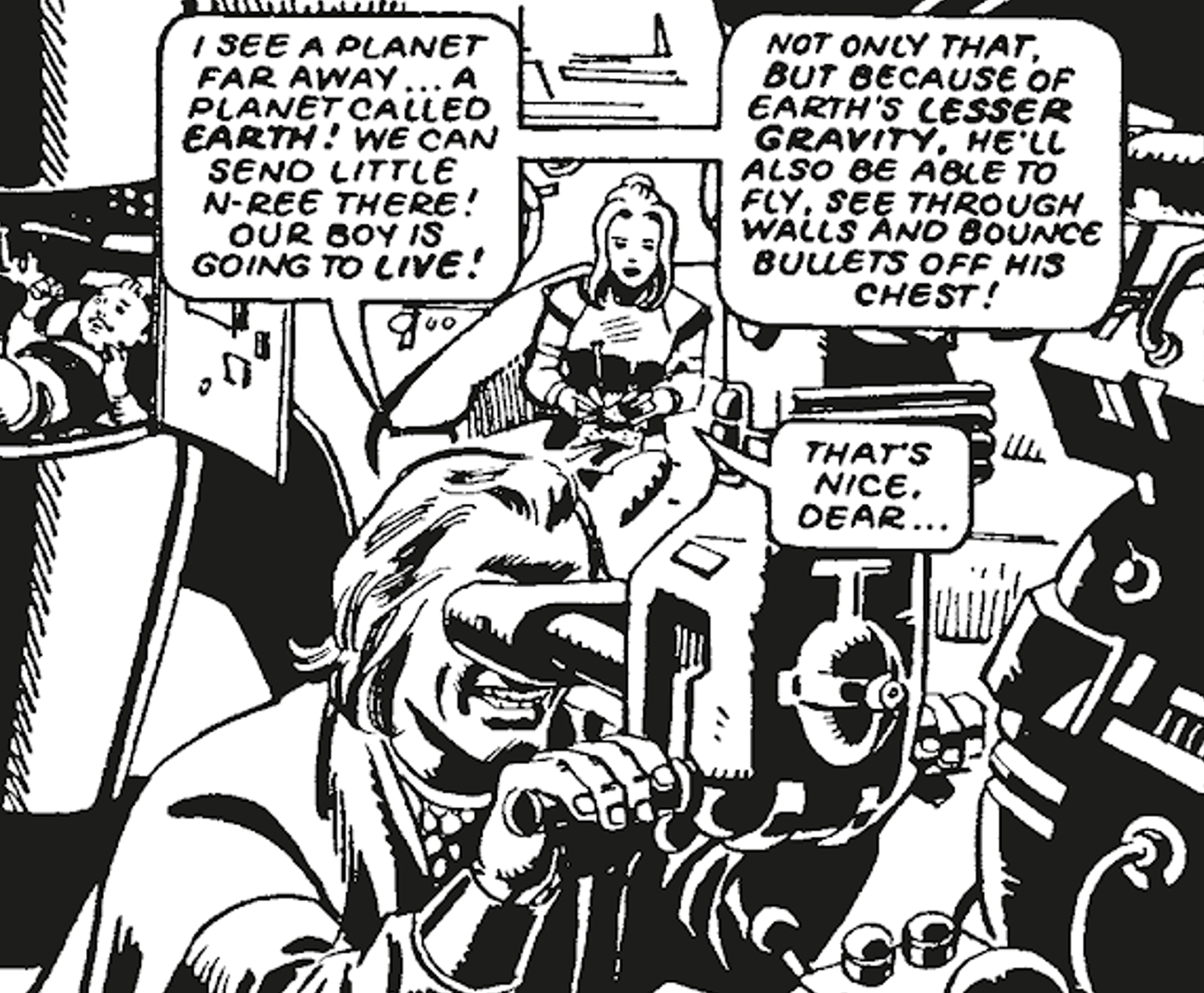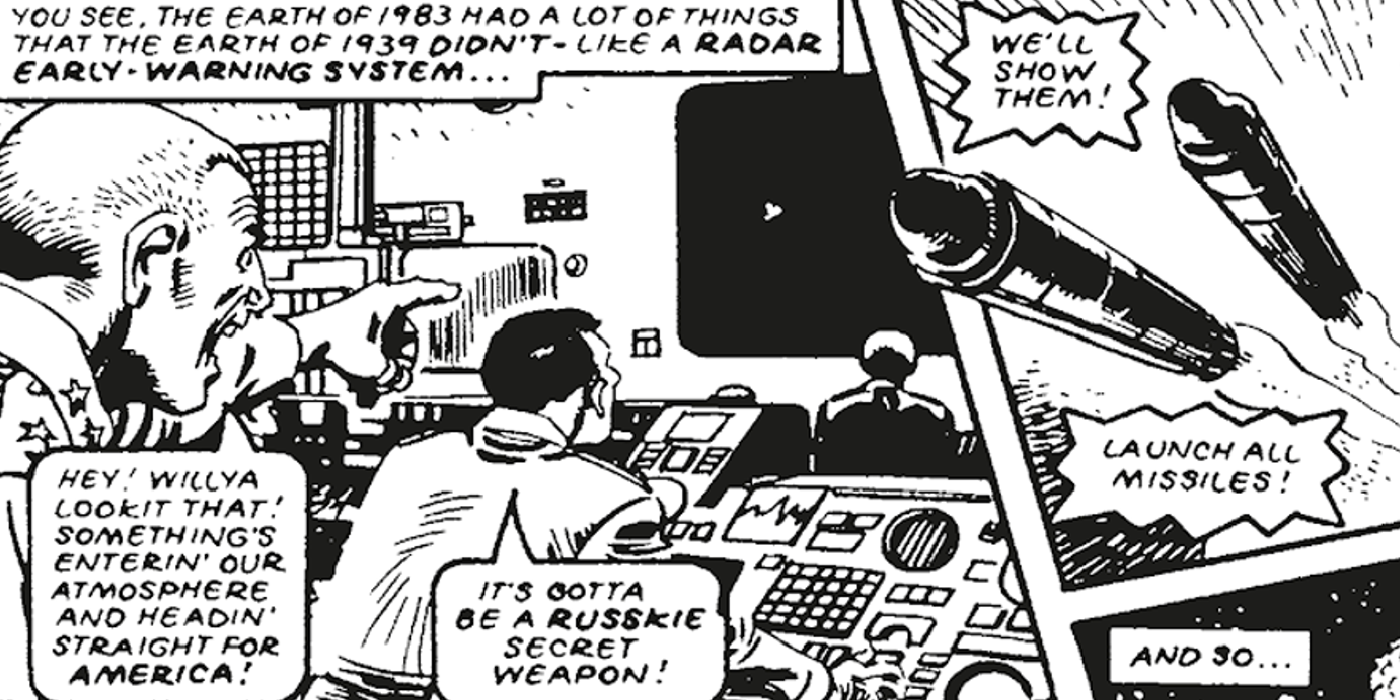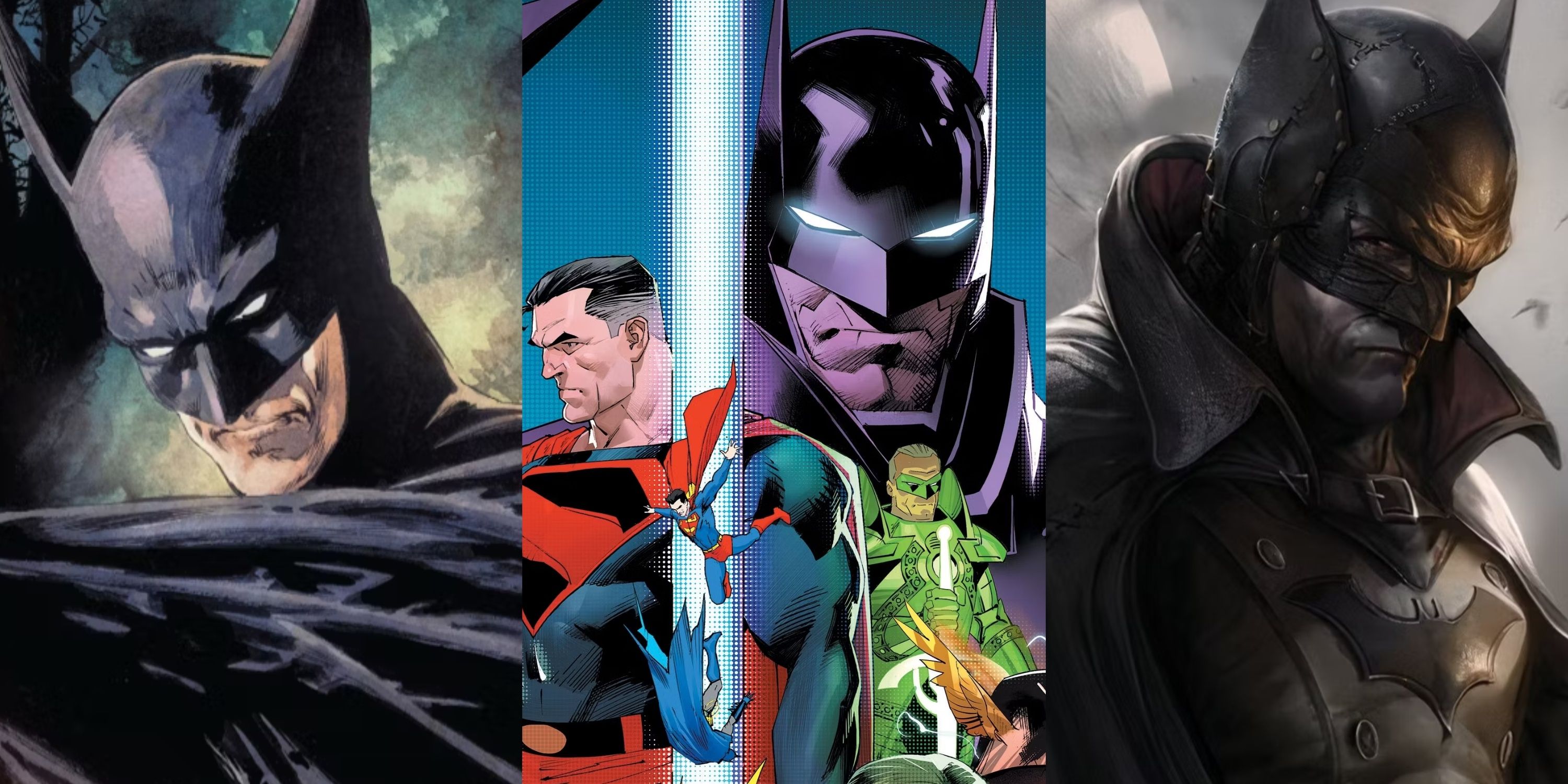The Kryptonian refugee Kal-El, aka Superman, is meant to be Earth’s ultimate superhero, and yet in Alan Moore‘s tongue-in-cheek parody of his origin, he manages to destroy the planet without using a single one of his powers. Strangely, while this story is only a few pages long, it explores a theme which remained through the rest of Moore’s work in the superhero genre.
Superman’s origin is so famous, the average person can list its most important beats even if they’ve never read a comic. Aware their planet is about to explode, Superman’s parents load their baby onto an escape rocket and send him to Earth where – thanks to the planet’s differences to Krypton – he becomes a godlike superhuman, capable of leaping tall buildings, running faster than a speeding bullet, and bending steel with his bare hands. In an early story, Alan Moore takes all these hallmarks of Superman’s journey and builds to a very different ending.
The story in question is Moore, Mike White, and Paul Bensberg’s ‘Tharg’s Future Shocks: Bad Timing,’ first published in 1982’s 2000 AD prog 291. Tharg’s Future Shocks are short sci-fi stories from a variety of creative teams, typically running a few pages with a twist ending. In ‘Bad Timing,’ fans see what’s effectively Superman’s origin story play out, albeit with different names (the alien boy is N-Ree of the planet Klakton, not Kal-El of Krypton.) After his theories about the planet’s approaching end are laughed off by the Science Council, Chief Scientist R-Thur resolves to save his baby son by loading him aboard a rocket and sending him to Earth, where he predicts he’ll be able to fly and have X-ray vision. Things proceed as expected until the rocket is launched, at which point – despite R-Thur’s predictions – Klakton spectacularly fails to blow up.

Sadly, that’s not the only twist in the tale. Due to entering a space-time warp, N-Ree’s ship doesn’t arrive in 1939 as intended, but in 1983, where the approaching rocket is picked up by American radar. In a tragi-comic ending, N-Ree’s ship is taken for a Russian missile, and the two superpowers unleash their nuclear arsenals, destroying the planet before their potential alien hero has even arrived. It’s a darkly funny ending, and yet one Moore would embrace as a sincere perspective on superheroes as his career continued.

Several of Moore’s most prominent works in the superhero genre take as their premise the idea that superhumans would ultimately destabilize the world, making humanity’s issues worse, not better. This is most clearly seen in Watchmen‘s Doctor Manhattan (literally described as “the superman”), whose arrival changes society in a hundred ways while ultimately pushing the world closer to nuclear war. The League of Extraordinary Gentlemen takes a similarly dim view of its superheroes, as they ultimately contribute to Earth and other planets devolving into chaos.
Ironically, Moore’s later work featuring the real Superman includes some of the most iconic stories featuring the Man of Steel – notably ‘For the Man Who Has Everything’ and ‘Whatever Happened to the Man of Tomorrow?’ – treating the hero with a degree of melancholy that’s not wholly divorced from the glib pessimism of ‘Bad Timing.’ While Moore has recently opined that superpowers would be useless in real life, much of his work goes further, suggesting that such unilateral expressions of power would hasten the end of the world. That sentiment exists even in a four-page parody of Superman‘s origin, as Alan Moore shows how the mere presence of a baby from another world is all the excuse humanity needs to annihilate itself.




